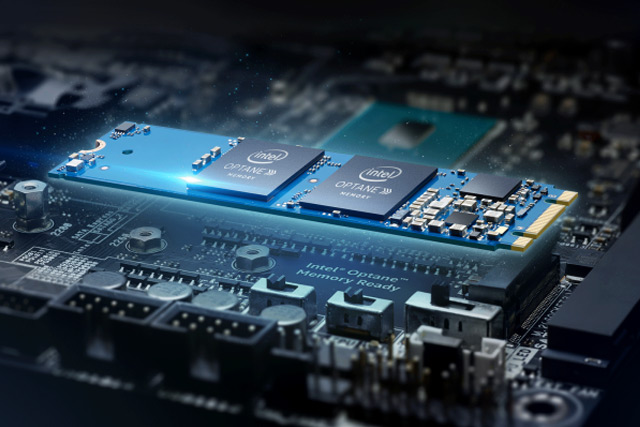
Intel Optane memory is something that has been talked about for a couple of years at this point, but apart from talks of samples and leaked specifications, not much hard information has been released. Along with all of the marketing lingo that surrounds the technology, thanks to Intel’s site we now know exactly what platforms it will support and what sizes we can expect this mini-caching drives to come in.
Designed to have a small form-factor and be affordable, the Intel Optane Memory will come in 16GB and 32GB sizes. Because of that small footprint, the Optane memory sticks will likely act as a form of high-speed caching drive. Although not as fast as high-end M.2 NVMe solid-state drives, they will be far faster than traditional NAND SSDs. When combined with a traditional hard drive or slower SSD, it could offer a nice performance boost.
As PCPer has it, performance increases with larger capacities, so if the price difference doesn’t end up being too much between the two, the 32GB version would be the way to go.
Chances are this means we will see initial releases show up in OEM systems, twinned with low-end SSDs or larger capacity hard drives to offer NVMe-like performance for those unwilling or unable to splash out for the more expensive drives.
Intel tells us on its new site that we can expect these Optane drives to improve system wake-up times and responsiveness while being affordable enough that it won’t be restricted to high-end systems.
However, this will not be something people will find it easy to add to older PCs or laptops, as Intel’s Optane technology is only supported by its seventh-generation Intel processors. While i3 through i7 are all supported, you should expect Optane technology to only be supported on Intel’s 200 series chipsets.



